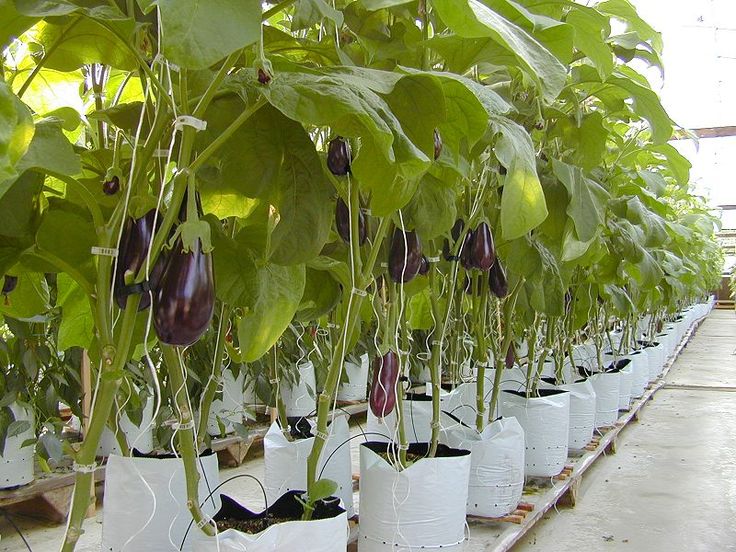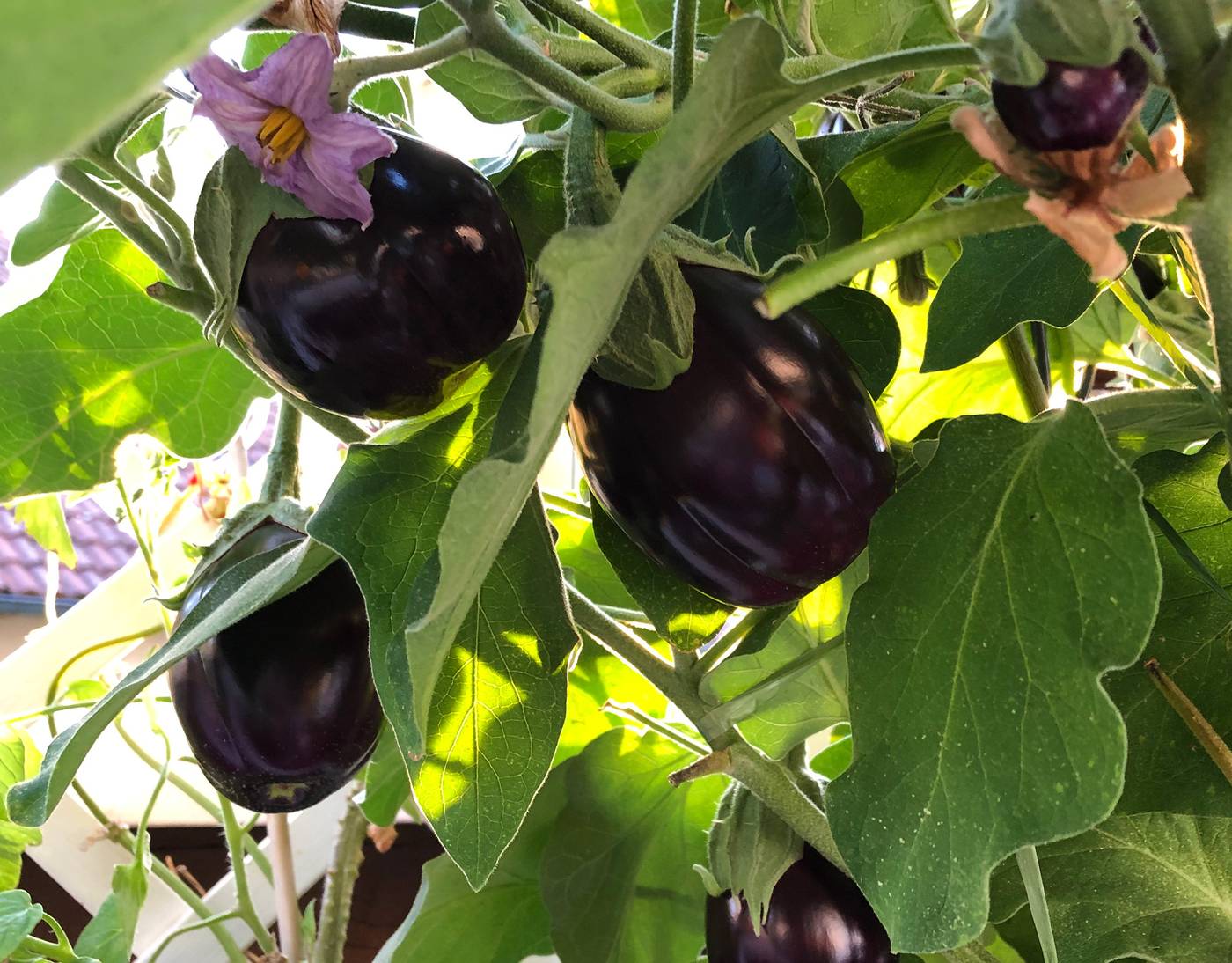How To Grow Hydroponic Eggplant
Growing hydroponic eggplant offers an innovative and efficient way to cultivate this delicious and versatile vegetable. With hydroponics, you can provide eggplants with optimal conditions for growth, allowing them to thrive in a controlled indoor environment.
Can You Grow Eggplant Hydroponically?
Eggplant is a tasty and versatile vegetable that can be enjoyed in a variety of dishes. It's no surprise, then, that many people are interested in growing their own eggplant at home for fresh produce all year round.
Growing eggplant hydroponically is a great way to do this, as it eliminates the need for soil and offers a more controlled environment for the plant to thrive in.
Hydroponically grown eggplants require little attention and can be easily harvested without worry of pests or disease. The quick growth process also makes it possible to harvest high-yielding crops much faster than soil-grown alternatives.
Is Hydroponic Eggplant Difficult To Grow?
Hydroponic eggplant offers a variety of benefits to the home gardener, including minimal maintenance and reduced growth time. A hydroponic system eliminates the need for soil as well as many other elements associated with traditional growing methods; therefore, reducing the risk of underwatering or over-watering and minimizing conditions that promote pests and diseases.
Because the plant is provided nutrients directly through a nutrient solution, there is no need to amend or rotate soil, making hydroponic eggplant fairly easy to grow for experienced gardeners.
Why Grow Hydroponic Eggplant?
The advantages of growing hydroponically are numerous, but it is particularly beneficial when it comes to eggplant. Hydroponics allows for an all-year growing season regardless of climate or geographical conditions, meaning no matter the season you can produce delicious eggplant.
Eggplant prefers a warm and humid environment and this is easily achievable in a controlled hydroponic system. This organically created climate prevents plant diseases from occurring as well as protecting from potential pests.
These protective measures completely eliminate gardeners from having to use sprays on their crops - making hydroponic eggplant totally organic.
Additionally, when growing hydroponically you have control over all aspects of your set up including the type of nutrients used, the light fixtures, and other environmental factors – allowing you to create a perfect home environment for your eggplants crop!
How Long Does It Take To Grow Eggplant Hydroponically?
Growing eggplant hydroponically is becoming a popular method of cultivation for the beloved vegetable. With the advances in hydroponic technology, it is easier now than ever before to grow your own eggplants from the comfort of home.
Although not as quick to mature as some other hydroponically grown crops, eggplant can still fare quite well with its 100-120 day period when started from seed, or 65-80 days when planted from transplants.
When deciding which variety of eggplant you wish to cultivate, it is important to take into consideration the maturation time that’s associated with each type. There are some varieties that will provide earlier harvests than others, but they may not be suitable for particular growing climates and conditions.
Experienced growers suggest researching different varieties based on the climate and local weather conditions before committing to one type of eggplant over another. Whatever variety you choose will ultimately affect how long it takes your crop to reach maturity.
What Are The Necessary Materials For Growing Eggplant Hydroponically?
Growing eggplant hydroponically can be a great way to get the most out of your garden without taking up too much space. It's also an excellent way to grow this popular vegetable without needing access to soil, making it ideal for those living in urban settings.
To succeed in growing eggplant hydroponically, one must have the necessary materials and equipment.
Growing Medium
Growing eggplant hydroponically requires the use of a properly balanced growing medium. The pH of the water used and the growing medium must be in the proper range to make sure that the eggplant can grow and thrive.
The ideal pH for optimal growth should be between 6.0-6.5. Some sources could suggest that slightly higher or lower levels may be suitable, but this will depend on experimentations and testing for what works best for your system.
pH Meter
The HM Digital PH pH Meter is the perfect tool for monitoring the pH level of your hydroponic eggplant solution. This meter has a resolution of 0.01 pH and an accuracy of +/-0.02 pH, making it highly precise and suitable for easy adjustments to ensure your nutrient solution is at its optimal range.
The simple-to-read LED display makes it hassle free to check on the current pH levels as you monitor throughout the growing cycle.
Unlike other expensive meters, this device is also affordable, giving you great value for money with its reliable performance and user-friendly features. It comes with a wide selection of calibration solutions, probes and buffers which make setup quick and hassle free.
With its intuitive design, precise measurements and budget friendly price tag, there's no doubt that this is one of the best pH meters available to grow eggplants hydroponically.
Water
Water is an essential resource for all plants, but hydroponic systems especially rely on a regular schedule of watering to ensure their fruits and vegetables grow properly.
Eggplant is one such water-intensive crop that requires consistent moisture levels to develop quality fruit. The best way to achieve this is to monitor the soil’s water levels daily and adjust the frequency of watering as needed.
In general, eggplants should be watered every two days during the growing season. This means that if temperatures are high and dry, it is necessary to water them more often — perhaps even daily — in order to make sure they have enough water for proper growth.
Fertilizer
Hydroponics is an increasingly popular method of growing plants without the use of soil. In this process, nutrients vital to the growth and development of plants are dissolved in water and delivered directly to the plant's roots through careful means.
This method of farming requires less land area and has been known to yield larger harvests than traditional agricultural methods. The absence of soil in hydroponics also permits for greater control over the plant environment - including temperature, moisture, light exposure, and fertilizer delivery.
Timer
Timers can be an invaluable tool when it comes to harvesting eggplant hydroponically. The perfect timing is essential to getting the best flavor and texture, so a timer can help you make sure that your eggplant crops are being picked at just the right moment.
When early harvest can lead to under-ripe fruit with less flavor, while waiting too long can result in over-matured produce that lacks complexity, using a timer allows you to get your crop at the peak of deliciousness.
How To Grow Eggplant Hydroponically - Step By Step
If you're eager to cultivate eggplant in your hydroponic garden, don't wait! Utilize this comprehensive guide to ensure success. The first step is to select the appropriate hydroponic system, as it is a crucial factor that can determine the outcome of your efforts.
What Type Of System Is Best For Growing Eggplant Hydroponically?
When it comes to growing hydroponic eggplant, the most important thing to consider is that these plants require a lot of oxygenation. That’s why two of the best types of systems for hydroponic eggplants are ebb and flow and DWC.
Ebb and flow is a simple system where the root zones of your plants are flooded with nutrient-rich water, then drained back into a reservoir. In this type of system, you’ll need an air stone and air pump in order to ensure adequate oxygen levels for your plants.
On the other hand, DWC stands for “Deep Water Culture” and it’s another popular system for growing hydroponic eggplant. The roots of these plants will stay submerged in nutrient-rich water, but with this method you will have multiple outlets that supply oxygen directly to the roots with an airs tone or injector stone.
This type of system is more complex than ebb and flow, but it can provide better access to optimal oxygen levels while still supplying nutrients with regular flood cycles. Ultimately, both systems have their own pros and cons so it pays to do your research before choosing one that works best for you.
Hydroponic Eggplant Propagation - Seeds vs Clones
Growing eggplants hydroponically is a great way to get a head start on the growing season. Planting seeds is the easiest and most common way to get started with hydroponic eggplant propagation.
In order to get the best results, keep the temperature around 70-90 degrees and make sure that your chosen variety of eggplant receives enough moisture.
After the seeds have sprouted and grown for two weeks, fertilize them with a soluble fertilizer and keep doing so until they are ready to be transplanted into your hydroponic setup.
It usually takes about six to eight weeks after sowing for this process to be completed for an average variety of eggplant such as Black Beauty.
When growing eggplants hydroponically, you don't necessarily have to start with seeds. Clones are also another good option when it comes to propagating eggplants in a hydroponic system.
Cloning allows you to take cuttings from already established plants and grow those in a controlled environment, rather than relying on natural processes like traditional seed planting requires.
This approach can save you time as you won’t need to wait as long for your clone plants to grow compared with starting from seed.
Feeding Your Hydroponic Eggplant Nutrients
Feeding your hydroponic eggplant the right nutrients is essential for growing healthy plants. The ideal pH should be around 5.5 to 6, with a ppm between 1750-2400. The nutrient solution needs to be monitored regularly and topped off with water when necessary.
Generally, these plants are relatively light feeders and only need their nutrient solution changed out once every 30-60 days, depending on the type of eggplant seeds you’re growing as well as its size and the type of hydroponic system you have.
It’s important to research what substances are necessary for optimal plant health and adjust for various factors such as temperature fluctuations and different types of eggplant varieties before establishing your nutrient regimen.
Caring For Your Hydroponic Eggplant
Caring for hydroponic eggplant is a little different than other plants, so it's important to do some research before you get started. Temperature should be kept steady and warm - the seed stage ideally needs temperatures between 70-90 degrees, with the vegetative and flowering stages being around 75-85 degrees.
Make sure not to let the warm temperature drop below 65 degrees or exceed 95 degrees as this can decrease your chances of setting fruit. Plants will also need supplemental grow lights - 8-10 hours a day is ideal – and LED are one of the best options available.
Additionally, they require higher humidity at around 50-65%, so if you don't have naturally humid air, consider investing in a humidifier or spraying your plants with a spray bottle occasionally. With some extra care and attention, your hydroponic eggplant will thrive!
How To Harvest your Hydroponic Eggplant
Harvesting eggplants from a hydroponic system can be a rewarding experience, as you can enjoy the fruits of your labor in no time. Eggplant seedlings typically require around 70 days to be ready for harvest and should be well-developed at this point. If they are smaller in size than when planting, then it may still need some more time.
When harvesting, make sure that you use a sharp knife or a pair of pruners to cut the short piece of stem attached to the top of each fruit. This should help avoid any damage to the plant and insure that future harvests will follow suit.
The beauty of harvesting with hydroponics is that multiple harvests can occur in succession and with the proper care, larger yields can be achieved.
To encourage continued production, regular pruning and nutrient delivery are crucial components for success.
Additionally, being mindful of environmental factors such as temperature and light play an important role in how successful your yields will be throughout the season.
Taking all these aspects into account will allow you to confidently harvest healthy eggplant from your hydroponic system in no time!












